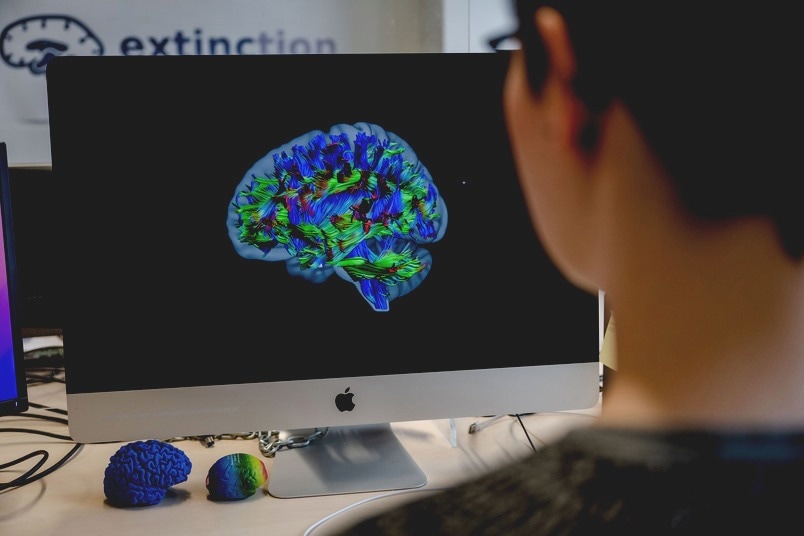Intelligence is presumably heritable. Certain genetic variations have been linked to higher intelligence test performance in research. Other research has linked intelligence to a number of brain characteristics, like network efficiency.
 For the first time, the team analyzed genes, different brain characteristics, and behavior together. © RUB, Marquard
For the first time, the team analyzed genes, different brain characteristics, and behavior together. © RUB, Marquard
For the first time, researchers analyzed all three parameters concurrently: genes, various brain characteristics, and behaviors. The scientists established which brain traits constitute the relationship between genes and behavior using gene studies, magnetic resonance imaging, and intelligence tests.
The findings were published in the journal “Human Brain Mapping” on April 4th, 2023, by a team led by Dorothea Metzen of the Department of Biopsychology at Ruhr University Bochum, Germany, and Dr Erhan Genç, formerly of Ruhr University and now at the Leibniz Research Centre for Working Environment and Human Factors in Dortmund (IfADo).
Aside from the IfADo and several Ruhr University institutes, Humboldt-Universität Berlin, the Central Institute of Mental Health in Mannheim, the Medical School Hamburg, and the University of Luxembourg were all participating. The biopsychology, human genetics, and genetic psychology teams of Ruhr University collaborated.
Genes, Brain, Behavior—A Unique Data Set
The study comprised 557 participants ranging in age from 18 to 75 years. They used saliva samples to determine which individuals had how many gene variations linked to high intelligence levels.
There are thousands of genes that contribute to intelligence. We calculated a summary score for each person that reflects the genetic predisposition for high intelligence.”
Dorothea Metzen, Department of Biopsychology, Ruhr University Bochum
Furthermore, all patients underwent brain scans, which the researchers utilized to evaluate not just the thickness and surface area of the cerebral cortex, but also how efficiently the brain’s structural and functional networks are organized. In addition, all participants underwent an intelligence test.
The broadness and detailed recording of various data in this study is, as far as I am aware, unprecedented. For the first time, we looked at the triad of genes, different brain characteristics and behavioral traits as a whole.”
Dr Erhan Genç, Leibniz Research Centre
The researchers examined which differences in genetic variations are linked to differences in brain features and differences in behavior.
Interplay of Genes, Brain Characteristics, and Intelligence in a Few Brain Regions
When the researchers focused just on the relationship between genetic variations and brain characteristics, ignoring intelligence test scores, they discovered multiple connections in several locations spread across the entire brain. When the researchers studied specific brain traits that were connected with intelligence test performance, they discovered significantly fewer relationships.
When scientists looked at all three parameters at once—genes, brain characteristics, and intelligence test performance—they only identified a link in a few brain areas: The frontal, parietal, and visual cortex. This means that gene differences only influence brain features in specific areas of the brain, and these traits affect intelligence at the same time.
The size of the brain surface and the effectiveness of structural connectivity were the two most important brain traits. When the researchers studied the thickness of the cerebral cortex and the efficacy of functional connectivity, they discovered very few such links between genes, the brain, and behavior.
Method also Transferable to Other Areas
The researchers anticipate that their work will have presented an approach that can be used in other areas. This is due to the fact that it enables the interaction of genes, brain, and behavior to be investigated not only for intelligence level but also for other traits.
It would also be interesting if such methods were used in the future with larger cohorts of thousands or tens of thousands of test subjects. Studying the impact of age would also be an interesting future research project.”
Dr Erhan Genç, Leibniz Research Centre
Source:
Journal reference:
Genç, E., et al. (2023). Structural architecture and brain network efficiency link polygenic scores to intelligence. Human Brain Mapping. doi.org/10.1002/hbm.26286.